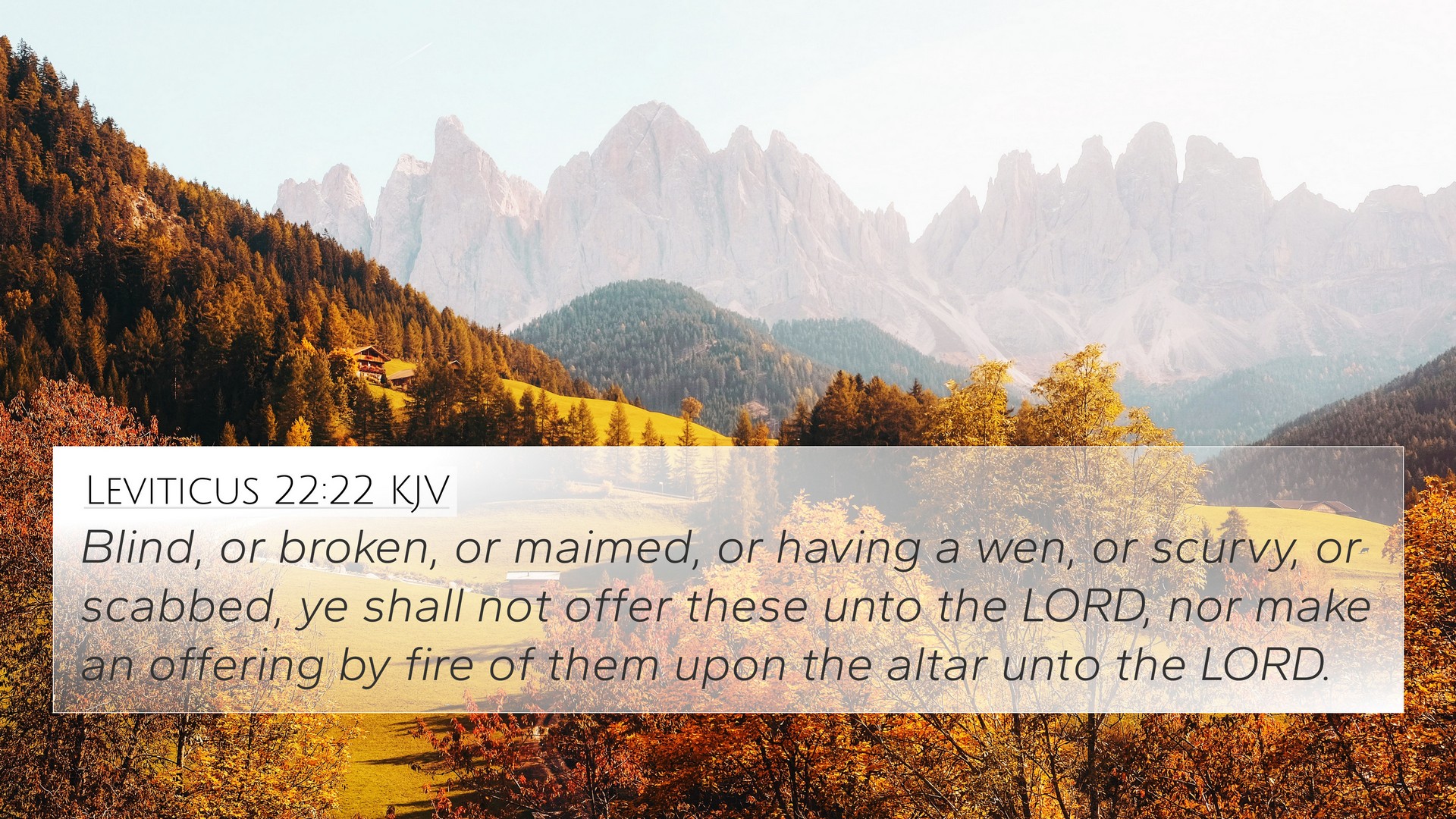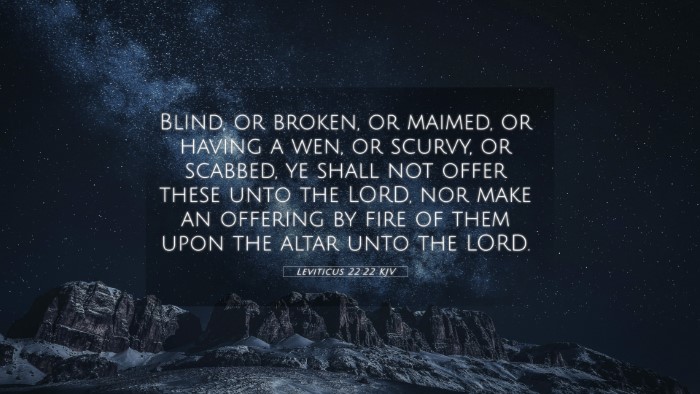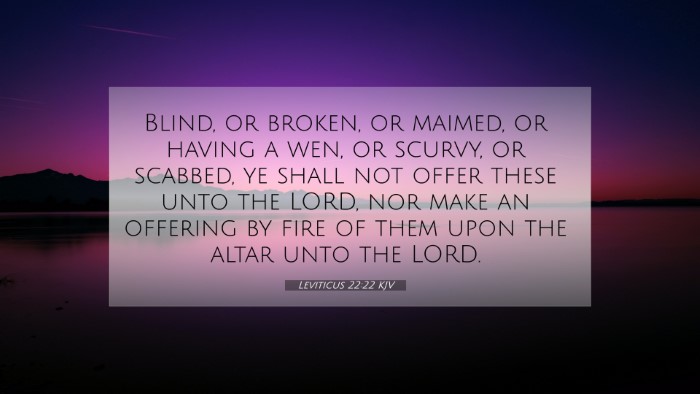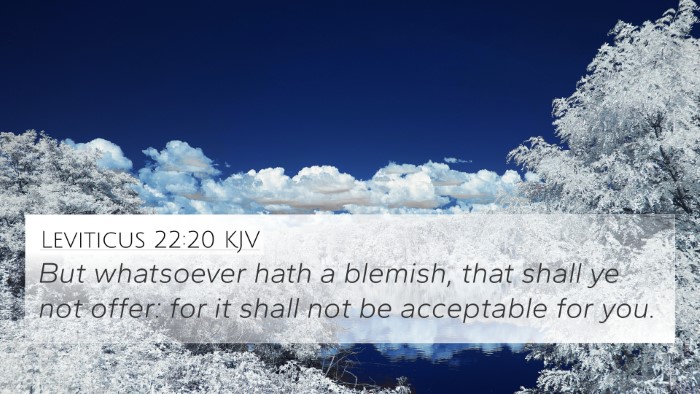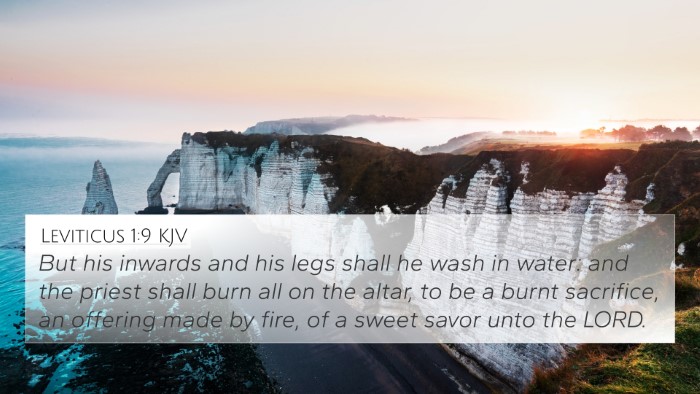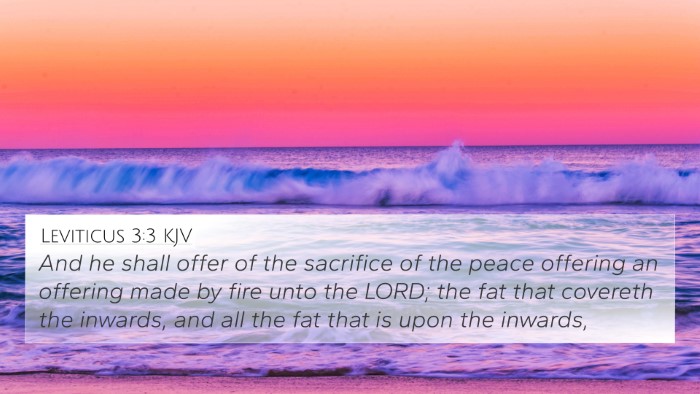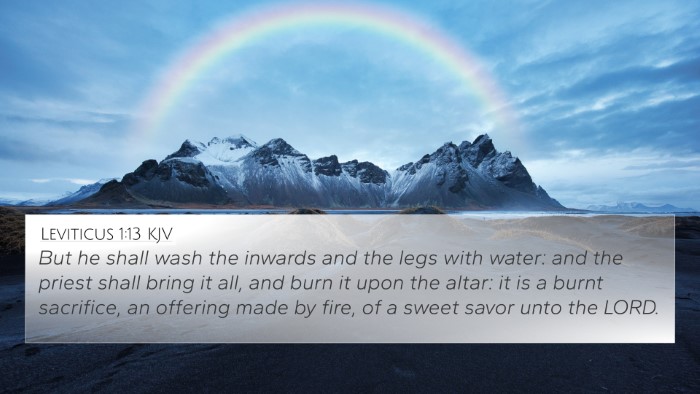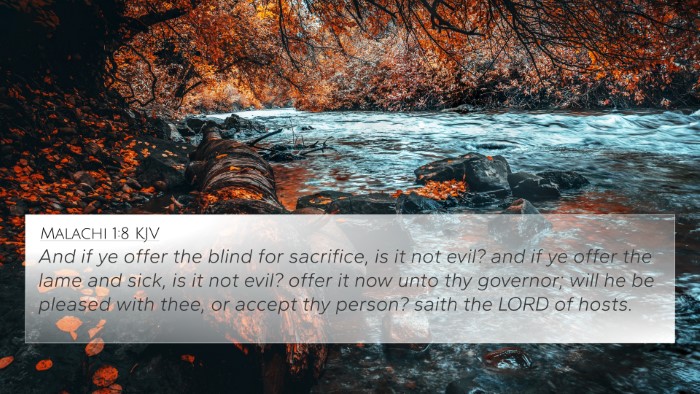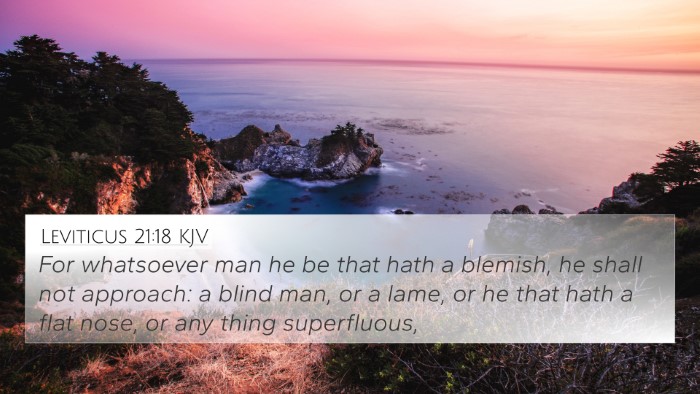Meaning and Interpretation of Leviticus 22:22
Leviticus 22:22 states:
"You shall not offer any animal that is blind or broken or mauled, or having a discharge, or you shall not offer any of these as an offering by fire to the Lord." (Leviticus 22:22, ESV)
This verse addresses the standards for sacrificial offerings to God, setting forth strict guidelines for the animals that could be presented. This careful definition highlights both the holiness of God and the importance of giving our best to Him.
Summary of Insights from Commentaries
Commentaries provide a wealth of knowledge about the context and interpretation of biblical texts. Here are combined insights from notable public domain commentaries:
-
Matthew Henry's Commentary:
Henry emphasizes the necessity of bringing offerings that are without blemish. This not only symbolizes the perfection required in sacrifices but also demonstrates respect for God's holiness. Henry suggests that this cosmic principle extends to how believers should present themselves and their works before God.
-
Albert Barnes' Notes:
Barnes explains that the physical condition of the animals is indicative of their worthiness as offerings. Such decrees were aimed at ensuring that the Israelites understood the gravity of worship. In their culture, presenting unworthy offerings could lead them to be in disfavor with God.
-
Adam Clarke's Commentary:
Clarke stresses the ethical implications of sacrifice. The flaws mentioned in the sacrifices represent moral and spiritual defects in relationships with God. Clarke encourages readers to reflect on their own lives, connecting the physical state of the offerings to the spiritual state of our hearts.
Significance of Sacrificial Purity
Leviticus 22:22 emphasizes God's desire for purity and perfection in offerings, reflecting His holy nature. Offering blemished animals implies a lack of reverence and an understanding of God’s sovereignty. Thus, this verse underlines the overarching theme of sacrificial systems in the Old Testament.
Bible Cross-References Related to Leviticus 22:22
- Exodus 12:5 - "Your lamb shall be without blemish." This emphasizes the expectation for unblemished offerings during Passover.
- Malachi 1:8 - "If you offer blind animals in sacrifice, is that not evil?" This plea demonstrates the continued relevance of sacrificial integrity.
- Hebrews 9:14 - Discusses the need for a perfect sacrifice for the purification of our conscience.
- 1 Peter 1:19 - "With the precious blood of Christ, like that of a lamb without blemish or spot." This connects the Old Testament sacrificial system to the New Testament understanding of Christ’s sacrifice.
- Matthew 5:23-24 - Jesus teaches about coming to God with a pure heart, paralleling the intent behind offering sacrifices.
- Isaiah 1:11-15 - God expresses disdain for worthless offerings, indicating that sincerity matters more than ritualistic obedience.
- James 1:27 - Calls for pure religion to be before God, highlighting the internal state that should accompany external actions.
Thematic Bible Verse Connections
This theme of purity in offerings and the integrity of heart extends beyond Leviticus. Similarities between various verses provide deeper insights:
-
Connection to Worship and Offerings:
- Romans 12:1 - "Present your bodies as a living sacrifice, holy and acceptable to God." It ties back to the principle that our offerings should be pure.
-
Connections between Old and New Testament:
- Hebrews 10:4 - "It is impossible for the blood of bulls and goats to take away sins," emphasizing the ultimate need for perfect sacrifice, fulfilled in Christ.
Understanding Connections Between Bible Verses
Utilizing a comprehensive Bible cross-reference guide can help illuminate the connections found in Scripture:
- How to use Bible cross-references: Identifying similar themes enhances comprehension and results in richer study.
- Bible reference resources: Various tools exist to aid in exploring cross-references efficiently, deepening scriptural understanding.
- Bible concordance: Useful in pinpointing and drawing parallels between various books of the Bible.
Conclusion
Leviticus 22:22 serves not only as a guideline for ancient Israelites' worship but also carries significant spiritual truths for contemporary believers. The verse reminds us of the seriousness with which we should approach matters of worship and the quality of offerings we present to God. Through cross-referencing this verse with others, a fuller picture of God's desires and standards can be achieved.
